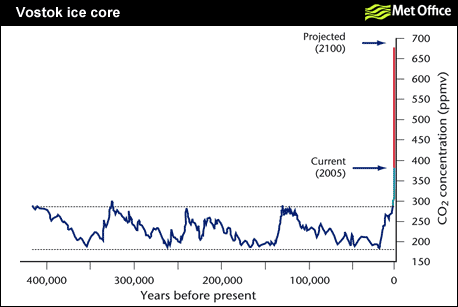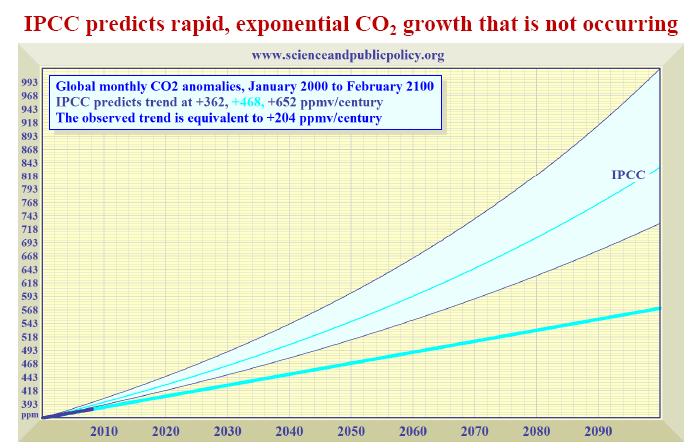Tinark
Active member
i see
are you arguing that climate changes in the past (before man started burning coal and petroleum) were predictable? :chuckle:
They were far less rapid. Rapid change is bad, leaves little time to adapt.
i see
are you arguing that climate changes in the past (before man started burning coal and petroleum) were predictable? :chuckle:
They were far less rapid.
if you identify as a scientist, you should qualify your responses
for instance: "they are believed to have been far less rapid, based on a weak understanding of past changes and a wild guess at possible future changes"
...there is no known mechanism that would account for such rapid climate change in the past.


The earth has never had such a rapid increase in CO2 in the atmosphere in a 100 year period.


i'd be very interested in seeing the technique that allows one to extrapolate 100 year increments in 100 million year old sedimentary rock
Here's how rapidly the CO2 levels are increasing:

They are relevant because just like in the 70's, quotes from scientists as recently as 2010 are now rubbish quotes.
Eventually the quotes from scientists today will be "rubbish quotes" in the future because these guys are wrong all the time.
Speaking of quotes, the following quote by Sarah Palin was considered "rubbish" back in 2008 by liberals (bold my emphases):
"After the Russian army invaded the nation of Georgia, Senator Obama's reaction was one of indecision and moral equivalence – the kind of response that would only encourage Russia's Putin to invade Ukraine next," - Sarah Palin - Reno, Nevada on October 21, 2008.
Now, let's compare Sarah Palin's quote from 2008 with a quote from Al Gore in 2008:
" Entire north polar ice cap will be gone in 5 years” - Al Gore, 2008
Um.....who's quote was "rubbish", and who's quote was spot on?
i'd really like to see those vostock ice cores that gave them the data for that red line :chuckle:
No need, we can measure how much CO2 is getting added to the atmosphere each year
and form reasonable predictions about future additions :chuckle:
we can estimate how much carbon is being extracted ad consumed and make an assumption that combustion will release it into the atmosphere as CO2 and that it will stay there unchanged
now, how accurate those estimates and assumptions are? :idunno:
based on models that may or may not be valid :chuckle:
On Sept.16, 2012, Arctic sea ice reached its smallest extent ever recorded by satellites at 1.32 million square miles (3.41 million square kilometers). That is about half the size of the average minimum extent from 1981 to 2010.
All carbon sinks are pretty well accounted for.
Natural sources of carbon are also well accounted for.
yes, popular science usually thinks it fully understands a phenomena
i suppose some of them do :idunno:

ouch
too big
:wave: I know why.
See the range there? Why do you think that range is insufficient to account for the uncertainty?
